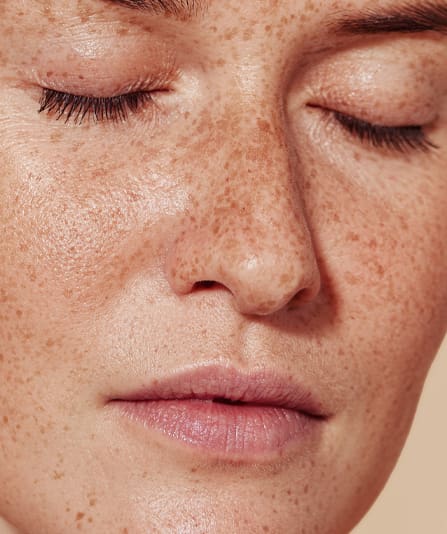Body & Face by Mr Ioannis Goutos
Pigmentation

There are a number of conditions known to cause patchy dark changes in the colour of the skin, resulting in areas of ‘hyperpigmentation’. These are typically areas that appear over time and following exposure to certain agents or skin conditions. Birth marks can also cause patches of darker looking skin but arise before or shortly after birth.
If you suffer with darker patches of skin, it is important to consult an experienced medical professional to ensure that it is a benign skin lesion and does not require any additional monitoring or treatment.
Mr Ioannis Goutos is a London-based plastic surgeon with extensive experience in looking after individuals with a wide variety of aesthetic problems and treatment goals. He offers a range of surgical and non-surgical procedures, including full assessment and post-procedure care. Mr Goutos has an excellent academic and clinical reputation in the field of treating individuals with scars and burns and places particular importance on holistic and tailored care for each patient.
Book your consultation today
Book nowAbout this condition
The tone of the skin is dependent on the amount of pigment that is produced within the skin cells. This pigment is known as ‘melanin’. If there is more melanin present, the skin will appear darker in colour and vice versa. In some instances, as we get older and are exposed to factors such as skin injury, sunlight or hormonal changes, the amount of melanin in parts of the skin can change, resulting in patches that appear darker from the surrounding skin. Common examples include:
- Melasma – appear as patches of darker skin, most commonly on the face and neck. They can occur in anyone but are more common in women and typically associated with changes in hormone levels such as in pregnancy or when taking hormonal-based medications, including the oral contraceptive pill.
- Sun spots – also referred to medically as ‘solar lentigines’, are most common in individuals with paler skin tones over the age of 40. They occur as a result of long term sun exposure, so are more likely to appear in areas such as the face, neck, hands and the top of the feet.
- Age spots – usually look like dark blemishes or large freckles, mostly occurring on the face and hands. Age spots are also referred to as ‘lentigos’ or ‘liver spots’
- Post-inflammatory hyperpigmentation – can occur as a long term result of healing following injury or inflammation in the skin, such as a wound, acne or eczema. This phenomenon is more typically seen in darker skin tones.
Pigmentation associated with injury or scarring may also be the result of old iron pigment left behind from old red blood cells.
Good general skin care can be helpful in preventing and reducing the appearance of areas of pigmentation. For example, ensure regular moisturisation of the skin and having a healthy lifestyle by eating well, drinking plenty of water and not smoking. Avoiding direct exposure to sunlight is also key, by either wearing appropriate clothing, or applying sun screen with a minimum 30 SPF when going into the sun. This is of particular importance in areas of skin that are more exposed to sunlight, such as the face, hands and arms.
Patches of pigmentation in the skin do not generally have a negative impact on physical health, however some people may feel particularly troubled by their appearance and feel self-conscious. There are a number of treatment options available that help to reduce the appearance of darker patches of skin, to make the skin look smoother and more even. These include:
- Topical treatments
- Laser-based therapies
- Intense pulse light therapy
- Needling
If you are thinking about having any of the above procedures, it is important to seek the advice of an experienced clinician to ensure that you are getting the right treatment for you, your skin type and your cosmetic goals. Some procedures carry risks of causing hypopigmentation (lightening) of the skin and are not suitable for all skin tones.

Testimonials
Mr Goutos is delighted to share some of his patient and peer feedback on their experiences of his services.











